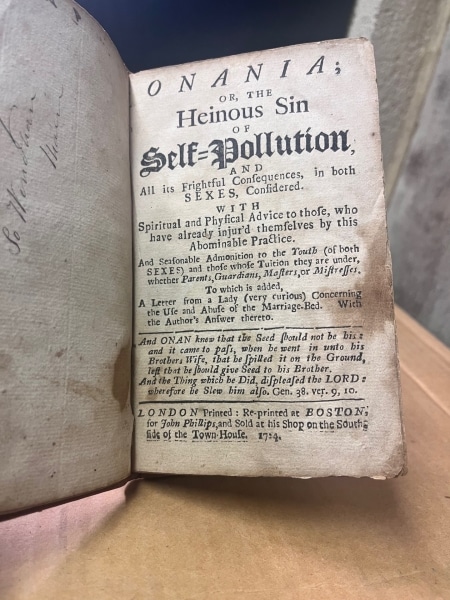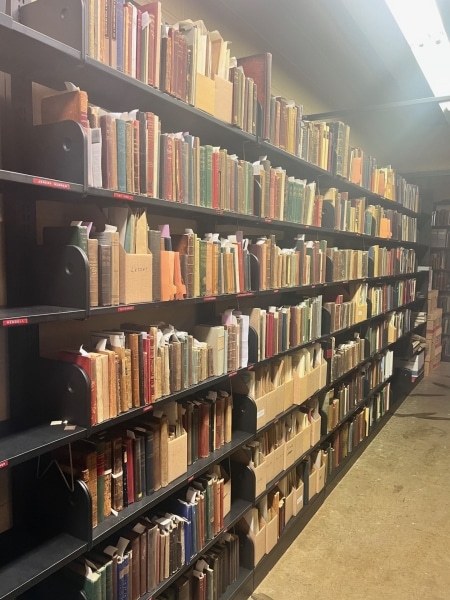Announcing an Unparalleled Gift from Dr. Charles E. Rosenberg
Rachel D’Agostino, Curator of Printed Books
If you have followed the collecting of the Library Company over the past half-century, you already will be familiar with the contributions of emeritus Trustee Dr. Charles E. Rosenberg. Since the 1960s, Dr. Rosenberg has been the preeminent American voice in the study of the history of medicine, and particularly in how that history intersects and interacts with the history of society at large. Through his career, he has authored numerous essays, articles, and monographs on the history of medicine, including The Cholera Years: The United States in 1832, 1849 and 1866 (1962), No Other Gods: On Science and American Social Thought (1976, expanded edition 1997), and Our Present Complaint: American Medicine, Past and Present (2007). To support his scholarship, Dr. Rosenberg built collections of primary sources, eventually numbering in the many thousands, and the Library Company has been the very fortunate recipient of many of these volumes over the years.
The gifts of Dr. Rosenberg have been described in dozens of Library Company annual reports. Along with the collections of another Library Company emeritus Trustee, the late William H. Helfand, Dr. Rosenberg’s collections have reached much broader audiences as the basis of the Adam Matthew Digital offering Popular Medicine in America, 1800-1900. They have also inspired and supported several major exhibitions at the Library Company, including most recently Hearing Voices: Memoirs from the Margins of Mental Health (2022). Needless to say, they have also supported the work of hundreds of scholars who have crossed our threshold specifically to consult them. Dr. Rosenberg’s impact on the study of the history of medicine will continue to grow, and we will share a part in that for as long as the Library Company’s doors are open (294 years and counting!).
In the spring of 2024, Dr. Rosenberg sent perhaps his most uncommon and exciting gift: a collection of more than 1,500 volumes, from the 18th through the 20th centuries, that address the subject of sex in all its forms. Homosexuality, intersexuality (formerly referred to as hermaphroditism), and venereal disease are all well-represented. Discussions of prostitution and nymphomania, or furor uterinus, describe the downfall of many young women, while young men seemed to have more to fear from the deleterious effects of onanism (masturbation). One of the most notable works in this gift is a very rare and early printing, the first American, of Onania; or, the Heinous Sin of Self-Pollution (Boston, 1724). Other segments of the collection focus on developments in reproductive medicine, such as the understanding of the role of the sperm and egg in generation, and the emergence of eugenics. Perhaps most relevant to modern conversation are the many works on birth control and abortion, both intentional and spontaneous. These include the proceedings of two early trials against Ann Trow Lohman, better known as Madame Restell, the famous abortionist and midwife who would later be arrested at the direction of no less a figure than Anthony Comstock.
There is simply too much to share about this collection to cover it in this brief article, or in our traditional deeper dive in the annual report. We have, therefore, decided to feature items that we find particularly interesting via our social media accounts through 2025, starting in February. Cataloger & LGBTQ+ Subject Specialist Em Ricciardi and I will produce most of these posts, though we expect that the interest generated by this collection will inspire others on staff, and perhaps visiting researchers, to do the same. They will be brief, as social media requires, but enticing and broadly representative of this tremendous collection. So if you do not already do so, consider following the Library Company on one of our several social media accounts,
including Instagram and Facebook. Perhaps we will even make our way on to TikTok this year – provided Em and I can come up with a cute 19th century birth control-inspired dance!
In all seriousness and sincerity, we send our deepest thanks to Charles Rosenberg for this truly remarkable gift!

Onania; or, the Heinous Sin of Self-Pollution (Boston, 1724)

A view of the newest addition to the Charles E. Rosenberg Collection.


